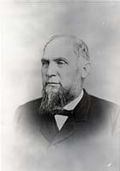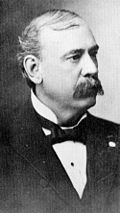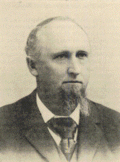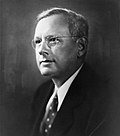| Governor of Kansas | |
|---|---|
 | |
 Standard of the governor | |
| Government of Kansas | |
| Residence | Cedar Crest |
| Term length | Four years, renewable once consecutively |
| Inaugural holder | Charles L. Robinson |
| Formation | February 9, 1861 |
| Succession | Line of succession |
| Deputy | Lieutenant Governor of Kansas |
| Salary | $99,636 (2017) [1] |
| Website | governor |
The governor of Kansas is the head of state of Kansas [2] and the commander-in-chief of the state's military forces. [3] The governor has a duty to enforce state laws, [2] and the power to either approve or veto bills passed by the Kansas Legislature, [4] to convene the legislature at any time, [5] and to grant pardons. [6]
Contents
- List of governors
- Kansas Territory
- State of Kansas
- Timeline
- See also
- Notes
- References
- External links
Since becoming a state, Kansas has had 48 governors. The state's longest-serving governors were Robert Docking, John W. Carlin, and Bill Graves, each of whom served 8 years (Docking served four two-year terms; Carlin and Graves each served 2 4-year terms). The shortest-serving governor was John McCuish, who served only 11 days after the resignation of Fred Hall.
The current governor is Democrat Laura Kelly, who took office on January 14, 2019.
























































